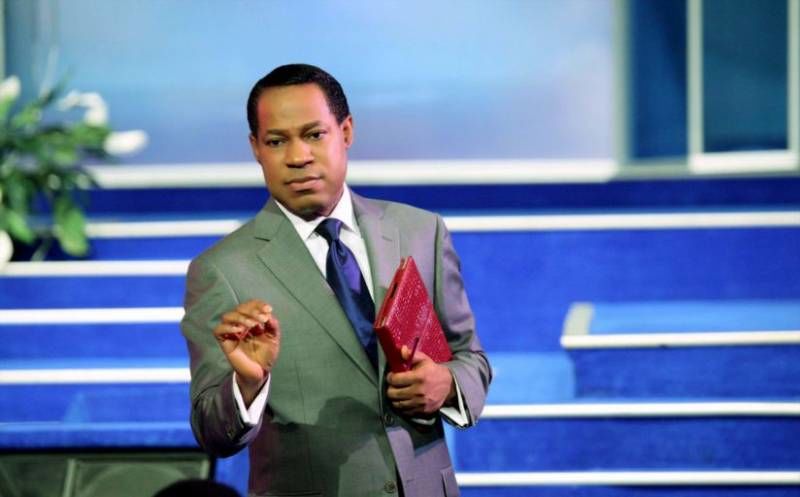
Prosperity Gospel in the poorest country on earth.
Since the dawn of age, man has been drawn to the divine. The immortal, all-powerful, and all-knowing being sitting on a throne in the clouds, watching over our affairs. Indeed, at present, the world's population can be roughly classified into an array of faiths, with each having its deity/deities. From Christianity to Islam to the billion lesser-known religions all over the world, the list is endless.
However, no faith comes close to Christianity in terms of the sheer number of its adherents. Every Sunday, billions of Christians all over the world joyfully flock to the house of God to worship, praise, and adore his sovereignty. Although the same cannot be said about most present-day Christian believers who care little about the worship of God but rather, his blessings. And unsurprisingly, there is no shortage of neo-Christian doctrines profiting immensely from this newfound obsession of Christians -especially evident in Africa.
The historical role of the church in Nigeria
A church is a gathering of Christians. It is a function of the gathering rather than the physical structure which houses the believers. Historically, the church has strived to fashion its lifestyle according to the consecrated life of Jesus Christ. So much so that when people saw the composure of the disciples of Jesus Christ, they immediately called them Christians, for they behaved a lot like him.
It is this mindset that initially accompanied the propagation of the early church in Africa and indeed Nigeria-the capital of Christianity in Africa by sheer numbers. The church has served as a moral compass for many churchgoers in Nigeria. The result is evident in the morally upright society found in the country. The atmosphere is generally one of godliness and holiness.
Furthermore, the church has served as a source of inspiration and emotional upliftment to them emotionally, financially, and mentally downtrodden in times past. Reassuring believers of a bountiful reward in heaven should combat the evils, trials, and tribulations of this world successfully.
Occasionally, the church would step up to meet the welfare of needy members of the congregation, following in the footsteps of the messiah-Jesus.
Sadly, the same cannot be said of new age African churches together with the pseudo-gospel and approximate doctrines they bring along. Call it the gospel of abundance, the wealth gospel, or the prosperity gospel, and you would not be wrong.
What changed?
Due to economic constraints, many churchgoers in Nigeria struggle to put food on their tables daily. They can hardly pay their bills or put off some money for savings, not to talk of affording luxurious items(which they crave). Consequently, the new-age African pastor has no problem ascribing the roots of the issues to certain evil spiritual beings, pointing out that the way out of poverty is to 'give.'
Because of the spiritual background of most African, they also have no issues believing the narrative. The gods have always required the blood of livestock in exchange for protection, good harvest, fertility, or prosperity. As a consequence, African pastors base the prosperity gospel on-premise 'give, and ye shall receive.
Specific carefully selected Bible verse based on the topic accompany their preaching most times with a bit of Jesus here and there-flawless!
The doctrines from new-age pulpits emphasize the manipulation of specific immutable laws to guarantee prosperity. Analogous to the law of karma, cause, and effect, action, and reaction(take your pick), the sermons are skillfully crafted around these principles, 'give, and ye shall receive. Somehow these acts of religious giving are supposed to obligate God to bless the giver. This is not to say that it is inherently wrong to give for the advancement of God's work; it is the emphasis on giving that draws suspicion.
The effects of the prosperity gospel:
The preaching of the prosperity gospel can be likened to giving little kids sweets before the main meal, thereby dampening their appetites. The prosperity gospel breeds Christians who seek the hand of God rather than his face. The Christians exposed to this kind of sermons dream of becoming like the preachers who live in stately homes, riding fast cars, and affording the luxuries of life. This goes against the very essence of Christianity, which should be heaven-focused rather than prosperity-focused.
The adherents of the prosperity gospel are urged to give so that they can receive wealth. This doesn't say that their trust in God is misplaced; most times, the congregation thinks of it as an automatic process. Knowingly or unknowingly, most prosperity preachers fail to emphasize the importance of hard work and discipline as a means of achieving success in any endeavor. Consequently, the believers go home with faith in their hearts, hoping for prosperity to find them while doing nothing. The result is catastrophic -poverty. The effect of the gospel of wealth is cushioned in the US, where it originated with income per capita of $60,200 per annum(versus $1,585 per annum in Africa). Americans will survive the nauseous side effects of this new-age gospel. The same cannot be of Christians in Africa.
Hardly any week passes without the news of one or more appalling stories involving Christians. The headlines can be found to go along these lines: 'Pastor found burying day old child in church premises,' 'pastor orders congregation to eat grass for prosperity' and the likes.
These kinds of headlines have become rampant, thanks to the greed which this kind of doctrine fosters.
Ominous figures
Recent research has reported that the majority religion in Africa is Christianity and that 38% of Christian will lodge in Africa by the year 2050. This number includes everyone who identifies as 'Christian, be it Orthodox, Roman Catholic, Jehovah's Witness, or any other Christian affiliations. Of the total number, protestants are projected to make up 37%.
Going by these figures, then by the year 2050, Africa's Christian population will be put at 1.1 billion Christian while 37%(i.e., 408,813,000 ) will be protestants.
In conclusion, Christianity in Africa has come a long way from humble beginnings. Presently, the role models who are supposed to tend the flocks by living an exemplary life as Jesus did are now obsessed with getting rich. And the trend doesn't seem to be stopping soon but instead gains momentum day by day. Going by these numbers, you can wonder what the future holds for Christianity in Africa.
Written by Simeon Samuel for CoolAfricanMerch

